Naturalisation refers to the legal process of attaining citizenship of a foreign country. The requirements for becoming a naturalised German citizen are governed by Section 10, para. 1 of the Nationality Act.
On January 19, 2024, the German Bundestag passed the law to modernize nationality law – this came into force from 27 June 2024. We publish this page to help you understand the new changes and to prepare for your citizenship application.
Acquiring German citizenship through naturalisation is the most common path for South Africans. Understanding the procedure is crucial to make an informed decision.
The process requires specific documents, language and integration tests, and proof of financial stability.
This article does not apply to the so-called “Gastarbeitergeneration“.
Step 1. - Check if you qualify
To be eligible for naturalization, a person has to have lived legally in Germany for at least 5 years and possess the appropriate residence permit.
For people who have integrated particularly well, naturalisation is possible after 3 years. For example, if you achieve outstanding performance at work or do voluntary work, speak German very well and can independently support yourself and your family.
Persons wishing to become naturalised citizens must declare their allegiance to the German constitution and have a sufficient command of the German language.
Candidates for naturalisation must be familiar with the legal system, society and living conditions in the Federal Republic of Germany (naturalization test) and be able to support themselves without recourse to social assistance unless this is due to circumstances beyond their control; nor can they have committed any serious criminal offences.
Below is a list of the minimum requirements.
| Requirement | Normal path | Well integrated path | Spouse of a German citizen |
| Right of permanent residence at time of naturalization. | 5 Years | 3 Years | 3 Years |
| Your identity and nationality have been clarified. | Beratungsgespräch, see below | Beratungsgespräch, see below | Beratungsgespräch, see below |
| Familiarity with the legal system, society and living conditions in the Federal Republic of Germany | Einbürgerungstest | Einbürgerungstest | Einbürgerungstest |
| Ability to support oneself without recourse to social assistance | Beratungsgespräch, see below | Beratungsgespräch, see below | Beratungsgespräch, see below |
| Oral and written German language skills | Equivalent to level B1 of the Common European Framework of Reference for Languages | Psoosible the equivalent to level C1 of the Common European Framework of Reference for Languages | Equivalent to level B1 of the Common European Framework of Reference for Languages |
| Criminal convictions | No criminal convictions | No criminal convictions | No criminal convictions |
| Commitment to the constitutional principles of freedom and democracy. | You accept the Basic Law (Grundgesetz) | You accept the Basic Law (Grundgesetz) | You accept the Basic Law (Grundgesetz) |
Naturalisation is not the only option to obtain German citizenship, more information on the link below.

Ways of obtaining German citizenship
Please note: Although the information on this website has been prepared with the utmost care, we cannot accept any responsibility for inaccuracies contained herein. Always
Step 2. - Pre-check (Beratungsgespräch)
It is a good idea to start preparing well in advance for your application. The naturalisation authority responsible for you may request additional documents from you, other than those listed.
It is therefore advisable to make an appointment (Beratungsgespräch) with your local authority to find out what documentation they might need, and if they need any documents translated.
During this appointment, they will also check your general eligibility.
Step 3. - Prepare for your German Citizenship application
During your Beratungsgespräch, you will get a list of documentation that you will have to submit with your application. Make sure you know which documents must be translated into German. Feedback from people currently applying for German citizenship is that each office has its requirements for apostil and translation of documents. So we advise you to ensure before paying for something they do not need. The risk is always that they might actually need it apostilled and translated further down the process. You can also search online for Einbürgerung + your local town or Landkreis. Here is an example from Landkreis Esslingen
At a minimum, you will need to submit proof of the following:
- Language proficiency (B1 level or higher).
- Familiarity with the legal system, society and living conditions in the Federal Republic of Germany. You can prove this by showing a German school-leaving certificate or by passing a naturalisation test.
- Identity and Nationality. This will be defined by the naturalisation authority where you apply. It is highly recommended to schedule a “Beratungsgespräch” with them beforehand to receive guidance on the naturalisation process and any specific requirements that may apply to your case. If they require an Unabridged Birth certificate from South Africa, apply for this well in advance.
As per the list of documents needed I received from the Bürgeramt in Esslingen – “Please note the following for foreign birth certificates: National birth certificates must have an apostille or legalisation mark and be translated by a publicly appointed and sworn translator.”
You might also be asked to submit the following: Marriage certificate / civil partnership certificate/ copy from the family register.
If you have been married before. Divorce decree or death certificate of the spouse/life partner, Custody decision / negative certificate given by the Youth Welfare Office (“Jugendamt”) or documents of an adoption decision. - Financial means. This can include work contracts, Tax statements, etc, and will depend on your situation and the requirements of the authority where you apply.
- a valid identification document (passport, travel document or similar).
- Passport photo.
- Valid residence permit.
- Completed Application form.

Einbürgerungstest and Leben in Deutschland
Leben in Deutschland The Leben in Deutschland tests your knowledge of the legal and social order and the living conditions in Germany. If you apply for Permanent residence, you must use the test to demonstrate knowledge of Germany’s legal and social system and living conditions. You do not necessarily need to attend the course to write the
Step 4. Retention of South African citizenship
Before you apply for German citizenship, you need to decide if you want to retain your South African citizenship. If you do want to keep your South African citizenship, you need to apply for retention of South African Citizenship. You can either do it in person in South Africa, via a Documentation company (see links below) or via the South African Embassy/Consulate in Germany.
The following information is from the South African Embassy in Berlin.
An adult South African citizen who intends to apply for foreign citizenship, but who does not want to lose his/ her South African citizenship, must first apply for the retention of South African citizenship, which must be done and approved before the acquisition of the other citizenship. According to the Consulate in Munich, you must apply in person. For that you need to send an appointment request to either the Embassy or the Consulate. See their websites or the link below for more information.
According to the South African Embassy in Berlin, the following documents must be submitted when applying for the retention of South African citizenship:
- Form BI-1664 to be fully completed in block letters and black ink
- Form BI-529 to be fully completed in block letters and black ink (if you do not have an ID or passport)
- South African ID and passport, as well as copies. The originals will be returned to you
- Original South African unabridged birth certificate and copy. The original will be returned to you
- Proof of permanent residency in Germany (this is not listed, but according to sources they might as for it)
- Proof that you haven’t acquired citizenship in that country (Negativbescheinigung) or an Erweiterte Meldebescheinigung. This must be translated into English.
People residing in Germany must contact the nationality authority (Staatsangehörigkeitsbehörde or Bürgeramt ) responsible for their place of residence (local or district administration).
NOTE – Information and advice from the Federal Office of Administration (BVA) is only relevant for people residing outside of Germany and they can use this link to apply.
The Supreme Court of Appeal (SCA) has ruled that the automatic loss of South African citizenship after gaining citizenship of another country is unconstitutional. See more information here. Our advice is to still apply for retention to cover all your bases. The SCA ruled it unconstitutional to withdraw someone’s citizenship, but as at 5 April 2024 the Constitional Court is yet to make its decision. More information on the Concourt website or their Twitter
You may apply to have your South African citizenship reinstated if you are a former citizen by birth or descent and you have returned to South Africa permanently.
Step 5 - Apply for German citizenship
You must submit a written application (Antrag auf Einbügerung) for naturalisation. You can obtain application forms from the responsible naturalisation authorities. Some authorities (Einbürgerungsbehörde) allow you to apply online. This will depend on the individual Authority and you will need an activated E-Residence card to use the service.
If all the naturalisation requirements are met, you will receive a temporary naturalisation guarantee.
Where to apply
You can find out which authority is responsible for your naturalization from the city or district administration of your place of residence, from the immigration office, the migration advice for adult immigrants or the youth migration services.
In general, if you live in an urban district (Stadtkreis) the naturalisation authority is the city administration (Stadtverwaltung) and if you live in a rural district, the district office (Landratsamt).
As a rule, applications are handled by the Bürgerdienste or Standesamt, but confirm this with the authority responsible for you.
Tip – To search online, search for “Einbürgerung als Ausländer mit Einbürgerungsanspruch beantragen” + the city or district.
You can also make use of the BAMF Website
Timeframe and costs
The process usually takes between 12 and 18 months.
The 2024 costs are €255 per adult and €51 per child
Children
All children born in Germany to foreign parents will now receive German citizenship without reservation and be able to retain the citizenship of their parents if at least one parent has lived legally in Germany for more than five years and has a permanent right of residence. The option to choose between citizenship no longer applies.
Important information
- Anyone who wants to be naturalized in Germany must commit to the values of a free society. This particularly includes the dignity and equality of all people. Anyone who does not share these values or even acts contrary to them is not allowed to become a German citizen.
The following sentence is therefore expressly included in the Nationality Act: “Anti-Semitic, racist or other inhumanely motivated actions are incompatible with the human dignity guarantee of the Basic Law for the Federal Republic of Germany and violate the free democratic basic order within the meaning of this law.” Such actions preclude naturalisation. - In future, applicants for naturalization must also commit to Germany’s special historical responsibility for the National Socialist rule of injustice and its consequences, in particular for the protection of Jewish life. An incorrect confession strictly excludes any naturalization.
- Expanded naturalization test: In response to the increasing anti-Semitism in Germany, the list of questions in the naturalization test has also been expanded. New test questions have been added on the topics of anti-Semitism, the right of the State of Israel to exist and Jewish life in Germany.
- Specific reasons for exclusion: Naturalisation is excluded in the case of polygamy or if the foreigner’s behaviour shows that he disregards the equality of men and women laid down in the Basic Law.
Forum
We started a forum where you can ask questions and discuss topics
Shared experiences from our community
To make it easier for others to understand the process and requirements we added a page where you can easily add your experience for us to share on our Shared Stories page

German Citizenship via Naturalisation: Share your experience – Retention
Help others to understand the Citizens application process by sharing your experiences. This form deals only with the retention of your South African citizenship process.We
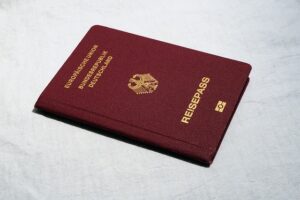
German Citizenship – Your stories
These are shared experiences by people who recently went through a German Citizenship application process. You can share yours with us via an easy-to-fill-in forms
Personal Experience - progress documentation
One of the admins is in the process of preparing to apply for German citizenship through Naturalisation. The progress will be shared via the page below.
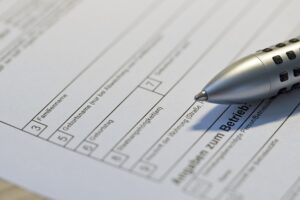
Applying for German Citizenship – Personal experience
I am currently in the process of preparing my application for German Citizenship, and will share my progress to this page. I am applying at
Disclaimer
In accordance with the German law governing legal advice and services (RDG, section 2 subsection 1) this page does not include any legal advice.
Assistance with documentation
A big thank you to the team at Apostil who provided us with information about the retention process. They can assist clients with obtaining documents from South Africa, as well as the application for retention of their South African citizenship

Apostil
Get South African apostilles, police clearances, birth/marriage certificates, legalisations and much more quickly and efficiently through our legal service. We have helped thousands of people

Doc Assist
Embark on a hassle-free journey with our comprehensive document services. Whether you’re planning to travel, work abroad, or need vital documents, Doc Assist is here
Official Information on the web
- Federal Ministry of Justice Gesetze-im-internet, Nationality Act. This is the English translation and has not been updated yet (30 June 2024)
- Bundesamt für Justiz Gesetze-im-internet – Staatsangehörigkeitsgesetz in German. Updated
- Federal Foreign Office – German citizenship
- Bundesministerium des Innern und für Heimat – Becoming a German citizens by naturalisation

Legalising Documents
Depending on the situation, you might need to have documentation authenticated, certified, or make certified copies thereof. Document authentication South Africa and Germany are both
Certified Translators in South Africa
The German mission in South Africa has a list of certified translators. The list can be found here.
Translation services in on our Website

Chris Grosch – accredited interpreter – sworn translator – VO artist
Chris Grosch – accredited interpreter – sworn translator – VO artist Professional linguist in English, German and French having lived in Germany, Japan, the US, France and now South Africa. Accredited simultaneous interpreter in all

Angela Goosen – Sworn Translator
Based in Cape Town South Africa. I am a born South African, stayed in Munich for 13 years and am back in SA I am a sworn translator for the languages German, English, and Afrikaans

Birgit Böttner – Sworn Translator
Based in Johannesburg South Africa. I’m a qualified sworn translator for English & German, registered with the German Consulate in Pretoria Trained in Germany in German and English and sworn in by the High Court

Linguistika
A Multifaceted Language Service founded by Stephanie Schaffrath TAILORED ONLINE LANGUAGE TUITION: With over 12 years of experience teaching languages, Linguistika is committed to providing high-quality language instruction to individuals of all ages and levels
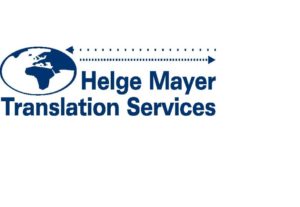
Helge Mayer translations services
Based in Germany. Helge Mayer (MA) – accredited/sworn translations German to English and English to German Masters Degree in Translations from the University of Heidelberg (Germany)
Related content
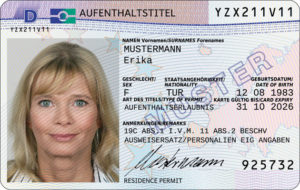
Residence in Germany
A Visa allows you to enter Germany, and stay for no more than 90 days in a 180-day cycle.When you want to stay in Germany

SA Consular and Embassy services
Please note that the Embassy in Berlin is currently not reachable on their listed phone numbers, please use 0171 364 2679 Embassy Berlin Reach them

Ways of obtaining German citizenship
Please note: Although the information on this website has been prepared with the utmost care, we cannot accept any responsibility for inaccuracies contained herein. Always

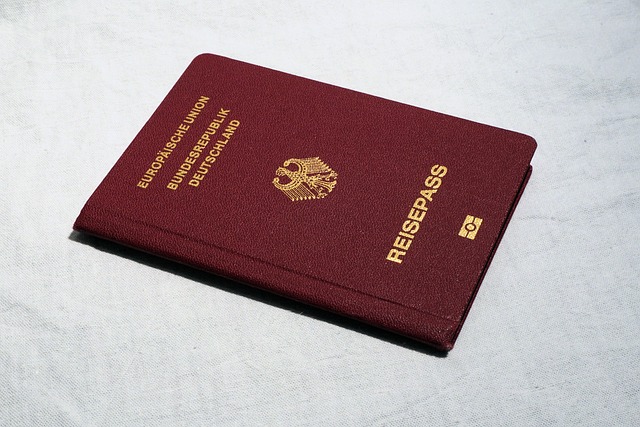

You must be logged in to post a comment.